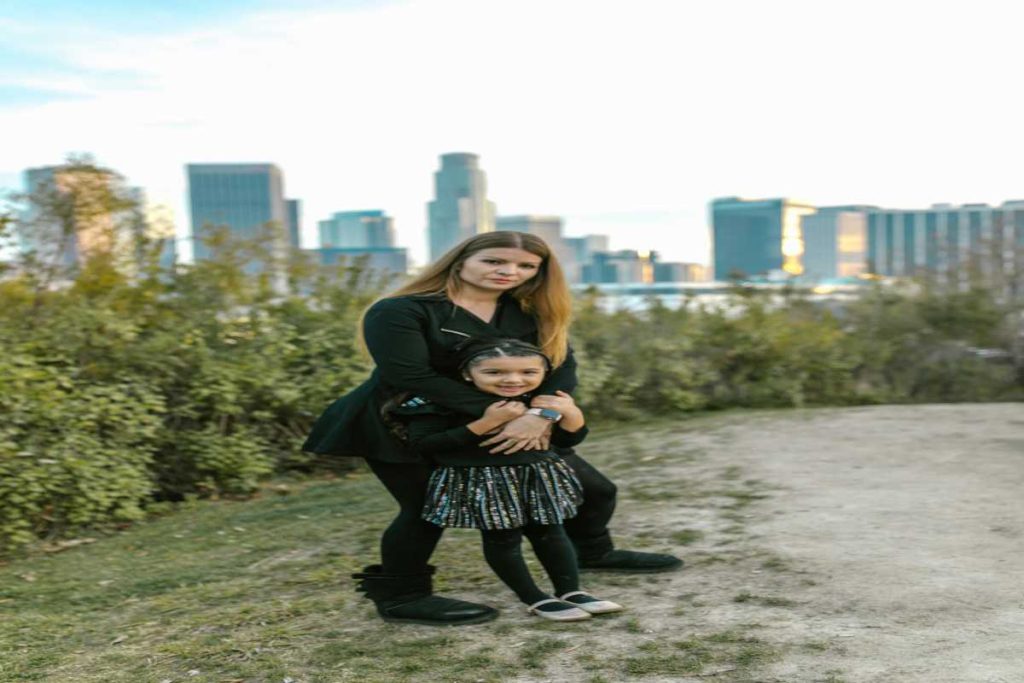Motherhood is a life-altering experience that often changes not just the day-to-day dynamics of a woman’s life but also her sense of self. The shift from being a woman, partner, and individual to becoming a mother can be profound and overwhelming. The identity of a mother is shaped by many roles—caretaker, nurturer, teacher, and more—but it is often difficult to maintain a strong sense of one’s own identity during this transition.
For many mothers, the impact of becoming a parent can result in the feeling of losing touch with who they were before children. The struggle to balance these new responsibilities with old ones often leaves little room for self-reflection or self-care. This blog will explore the critical role that identity plays in motherhood, why it is essential for mothers to maintain a sense of self, and how to navigate the shifts in identity that come with motherhood.

The Identity Shift: From Woman to Mother
Becoming a mother is often marked by a significant shift in personal identity. This transformation is not just physical—though pregnancy and childbirth can certainly alter a woman’s body—but also emotional, psychological, and social. The demands of motherhood, especially in the early years, can leave little room for the woman who existed before, causing a sense of disconnection from that part of oneself.
Why the Shift Happens:
Motherhood often requires full attention and constant energy. A mother’s primary focus shifts to caring for her child, which can lead to neglecting her own needs, desires, and ambitions. The physical and emotional demands of parenting, combined with societal pressures, can make it feel as though the role of “mother” eclipses all others.
Additionally, societal expectations about what it means to be a “good mother” often add another layer of complexity to identity. From breastfeeding to balancing work and home life, mothers are expected to live up to high standards, making it easy to lose sight of the individual person beneath the label of “mom.”
- Example: A woman who once thrived in her career may suddenly find herself overwhelmed by the endless responsibilities of parenting and may begin to wonder who she is beyond motherhood.
Challenges in Balancing Personal Identity with Motherhood
The journey of motherhood can feel like a constant balancing act between caring for others and preserving one’s sense of self. As a mother, you may struggle to find a balance between nurturing your children, tending to your partner, and meeting personal and professional obligations.
1. Guilt and Sacrifice
Many mothers feel guilty for taking time for themselves, believing they should always be available for their children. This feeling of guilt can undermine their sense of identity, leading them to ignore their own needs and desires. Over time, this can cause emotional burnout and resentment, as they lose touch with the things that once brought them joy.
2. Societal Expectations
Society often promotes an idealized version of motherhood—one in which mothers are selfless, always available, and constantly sacrificing for their children. This expectation can leave mothers feeling inadequate if they don’t fit the mold. Over time, they may internalize these societal norms, suppressing their individual identities in favor of meeting external expectations.
3. Lost Career Identity
For many mothers, balancing a career with motherhood can be one of the most difficult challenges. If a mother decides to take time off work to focus on her children, she might experience a loss of professional identity. The shift from being a career-focused individual to a stay-at-home mom can lead to feelings of inadequacy, as though they have lost their place in the professional world.
The Importance of Maintaining a Strong Sense of Self
While motherhood can be all-consuming, maintaining a strong sense of self is crucial for both the well-being of the mother and her family. A mother who feels fulfilled in her personal identity is better equipped to handle the challenges of parenting and can model self-care and healthy boundaries for her children.
1. Emotional Well-Being
Maintaining a connection to one’s own identity helps support emotional stability. When mothers take time to nurture their passions, relationships, and personal growth, they build a stronger foundation for mental health. A well-balanced mother is more likely to be present and engaged with her children, reducing the stress and strain of caregiving.
- Tip: Set aside time for personal hobbies or activities that bring you joy, even if it’s just for a few minutes a day. Reclaiming your personal interests helps restore your sense of self.
2. Healthy Relationships
Motherhood can place immense pressure on relationships with partners, friends, and family members. By maintaining personal boundaries and taking care of your emotional needs, you are better able to show up in your relationships in a healthy and supportive way. This not only benefits you but also creates a positive example for your children.
- Tip: Communicate openly with your partner about your needs and carve out time for shared activities that remind you both of who you are beyond your roles as parents.
3. Self-Worth and Confidence
A strong sense of personal identity boosts self-esteem and confidence. When a mother feels good about herself, her role as a mother can become more fulfilling. Mothers who are able to stay connected with their individual identities are more likely to feel empowered, capable, and confident in their parenting.

Navigating the Challenges: How to Reclaim Your Identity
While the shift in identity during motherhood is natural, it doesn’t mean mothers have to lose themselves completely. Here are some practical tips for maintaining or reclaiming your personal identity during motherhood:
1. Prioritize Self-Care
Self-care is vital for emotional well-being. It might seem selfish, but taking time for yourself is not only good for you—it’s good for your family. Whether it’s through exercise, meditation, reading, or simply taking a walk, make sure to schedule regular moments of self-care into your routine.
- Tip: Plan for at least 30 minutes of “me time” each day, whether it’s a solo walk, journaling, or time spent engaging in a creative hobby.
2. Keep Pursuing Your Passions
Don’t let motherhood be the sole definition of your identity. Whether it’s through continuing education, career pursuits, artistic endeavors, or fitness, keep engaging with your passions outside of being a mom. This will help reinforce your individuality and make you feel fulfilled beyond your parenting role.
- Tip: Dedicate a few hours each week to pursue a passion or goal that excites you. Whether it’s a part-time job, a creative hobby, or learning something new, these activities are vital for maintaining a sense of self.
3. Cultivate Strong Support Systems
It’s essential to surround yourself with people who uplift you and understand the complexities of motherhood. Whether through close friendships, online communities, or family support, having people who validate your experience as both a mother and an individual helps you maintain a balanced sense of self.
- Tip: Regularly connect with friends, whether in person or through virtual platforms, to engage in conversations that focus on your interests and personal experiences beyond motherhood.
4. Set Healthy Boundaries
Setting boundaries—whether with your children, partner, or work—is an important way to protect your personal space and time. Healthy boundaries ensure that your needs and desires are respected, which is crucial for maintaining your sense of self while navigating the responsibilities of motherhood.
- Tip: Be clear with your family and friends about the boundaries you need to recharge and pursue your own goals.
Conclusion
The role of motherhood is transformative and beautiful, but it’s also a journey that requires mothers to navigate the complex terrain of identity. It’s easy for mothers to lose themselves in the demands of parenting, but maintaining a sense of personal identity is essential for emotional well-being and a healthy family dynamic.
By prioritizing self-care, pursuing passions outside of parenting, seeking support, and setting boundaries, mothers can navigate the challenges of identity and create a fulfilling, balanced life that includes both their role as a mother and their individuality. Remember, a fulfilled and empowered mother is one of the greatest gifts you can give to your children, your partner, and yourself.
